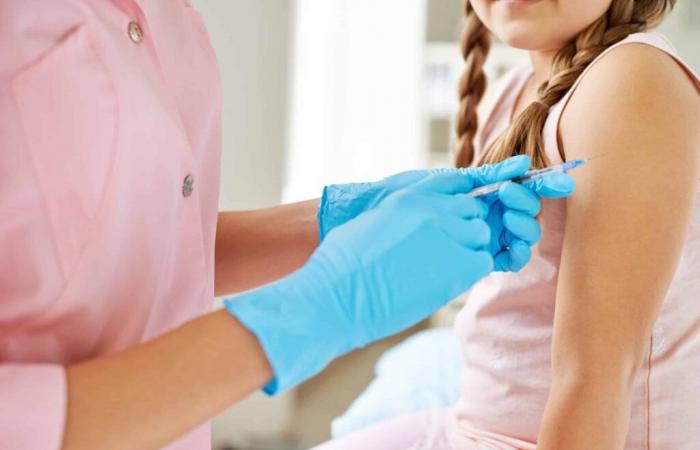HPV can increase the risk of cancer. However, vaccination protection can reduce this threat. But, in Luxembourg, no one knows how many people are vaccinated against the virus.
The Luxembourg Ministry of Health wishes that more people are vaccinated against papillomavirus (HPV). This virus is very widespread and is not always noticed. However, almost 80% of men et women are infected at least once in their life. The disease can then infect the skin or the mucous membranes of the people concerned and increase the risk of cancer.
HPV is particularly known to be the cause of cervical cancer. But it can also increase the risk of other types of cancer, e.g. organ genitalsof the gorge and theanus. The papillomavirus is transmitted mainly (but not exclusively) during sex.
L’World Health Organization (WHO) and the European Commission aim to achieve a vaccination rate of 90% among girls of 15 years by 2030 and considerably improve that of boys.
In the Grand Duchy, it is impossible to know where vaccination is going; he there are no numbers on the number of people vaccinated against HPV. This is what the Minister of Health, Martine Deprez, had to admit in a parliamentary response after a question from Pirate MP Sven Clement.
The fact remains that for more citizens to be vaccinated in the future, the Health administration is banking oninformation. On the one hand, there exists a brochure is distributed to the target audience. And, in 2025, a new prevention campaign will be launched.
Letter to parents
As it is mainly adolescents who are vaccinated, the subject of vaccination is also discussed by school doctors during their classroom visits. If a young person is not vaccinated, they then receive a brief explanation from medical staff and a recommendation is sent to parents to encourage them to vaccinate their child.
Although it is recommended to be vaccinated against the papillomavirus before first sexual intercoursea subsequent vaccination and into adulthood can still offer protection against the virus. Why then not reimburse this injection for policyholders aged 21 and over, asks Sven Clement.
The Higher Council for Infectious Diseases recommends vaccination of boys and girls between 9 and 14 years old inclusiveas well as a program of catch-up between 15 and 20 years. In addition, the High Council recommends the vaccination of people immunocompromised. The vaccination schedule consists of two doses 6 months apart.
The CNS only covers the cost of these recommended vaccines.
People who wish to be vaccinated against papillomavirus later in life, and who are therefore not part of these target groups, need a medical prescription. They will therefore have to pay the costs themselves. Furthermore, 3 doses (instead of 2) will be injected into adults, according to the minister.
Diseases that can be avoided by vaccination and sexually transmitted infections are once again observed more often in Luxembourg. The Public Health Service reported this last September. Furthermore, theWorld Health Organization had warned against a “ alarming decline in condom use among young people” and an “increased risk of sexually transmitted infections and unwanted pregnancies ».
Also follow our news on Instagram






